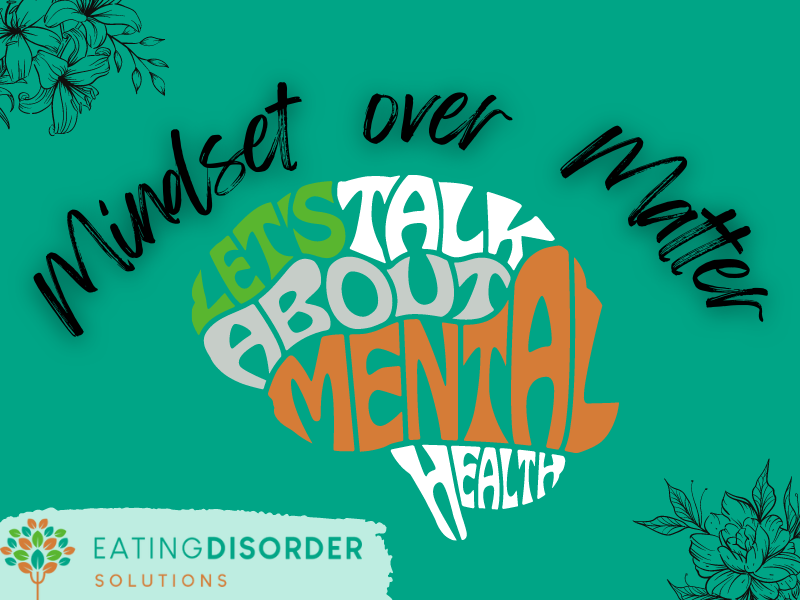“Your brain can be your most powerful asset. But if not used properly, it can be your biggest liability.” – Robert T. Kiyosaki.
Our brains are astounding, but they have weaknesses that can wreak havoc on your life. Your brain becomes influenced easily, picking up patterns and creating new behaviors around those patterns. That’s because our brain is the fastest processor in the known world.
Suppose you tell yourself you are unattractive whenever you look in a mirror. In that case, your brain will warp to that mindset because it’s establishing a pattern of behavior from it. If you do something a lot, then it must be good, right? That’s how your brain processes information. I think you know where I’m going with this.
The thing about our brain is you genuinely do need to treat it as you would a plant. If you want your plant to stay alive, you learn how to water it correctly. When it comes to your mind, if you want it to be positive, you need to ‘water’ it daily with grace, love, and patience. Whatever you feed it – it will retain and train. If you talk to yourself with love, you will feel more confident. If you speak to yourself negatively, you’ll begin to feel the aftermath of those thoughts in how you perceive yourself.
You Do Have Control Over Your Positivity
The most persuasive appeal about accepting an optimistic mindset is that YOU get to control it. Our brain’s chemistry affects how we feel. Cortisol decreases when we think happy thoughts or feel joy, and the brain creates serotonin in response to our positive emotions. When serotonin levels are normal, one feels comfortable, calm, less anxious, more focused, and emotionally stable. Conversely, negative thoughts outnumber our positive reviews daily, and they significantly impact us more than positive ones. So, what affects your ability to think positively?
- 36% of your mindset is determined by your genes
- 10% of your mindset is determined by your circumstances
- 54% of your mindset is determined by your activities
You don’t have much control over your genetics. But, we can offset our genetics by focusing on our circumstantial and activity factors – leaving us with control of at least 50% of our mindset. You have the power to take control of the way you perceive things by strategically choosing your thoughts, behaviors, and actions. Over time, you can form life-long habits that increase your resilience and improve your happiness levels, starting with recovery and the mindset you create for it.
Neurons that Fire Together, Wire Together
A mindset can be seen as how your brain trains your soul to believe in something – good or bad. A positively stimulated brain will eventually change a negative mindset. Here are some of the most common examples of a ‘negative’ mindset:
- All-or-Nothing: This all-or-nothing mindset makes it hard to approach issues while still being fair to yourself. Examples include, “I will never look like her/him/them/they,” or “I need to binge or stay on a diet.” This way of thinking doesn’t give you any room to work with when it comes to the success of that outcome, and that’s the thing about success: it’s different for everyone. There’s no perfect way to achieve it.
- Emotional Reasoning: This is when people believe their thoughts are factual, even though their emotions are the only basis they’re going off. It becomes difficult to engage productively with someone if this is their response because they are centering their ideas based on negative emotions. Some examples include: “I’m anxious about going to therapy; therefore, going to therapy must be a waste of time,” or “I feel like this now, and I will feel like this forever.”
- Labeling: Putting negative labels on yourself, people, and things around you is another common type of harmful thought pattern. If you are constantly calling yourself “a loser,” “ugly,” or “fat,” you can eventually grow into that mold because your negative perception gives you no options to extend beyond them.
- Fortune-Telling: Projecting pessimism onto the future can create a self-fulfilling prophecy. This means your actions will follow that negative pattern because you imagined something ending badly. For example, if you’re walking into a therapy center and believe it’s a waste of time, so you don’t put effort into the healing process, this will most likely lead to a negative result in recovery.
So, how can we possibly combat these negative mindsets? The riveting part about this next step is that the possibilities are endless, and you can work on these every single day. But, keep in mind that these are not the only options you have:
- Create A Positivity Stockpile: When we’re in a mental downward spiral, it can be challenging to remember the good things going on. With social media expanding the feelings of depression and anxiety, it’s best only to follow motivational, aspirational, and feel-good content. Consider following specific therapists online, motivational speakers, or celebrities that have overcome what you’re currently struggling with. Seeing these different uplifting messages can trigger feel-good neurochemicals in the brain like serotonin, dopamine, and endorphins.
- Reframe Your Thoughts: If you find yourself stuck with a stream of negative thoughts, try a helpful technique used in cognitive behavioral therapy: reframing thoughts. Self-awareness is a concept that can help calm many situations. If you know how you’re feeling, you can create a safe space for yourself. Having self-awareness is like having an interview with yourself. Is the thought you’re currently having fact or more of an opinion? How likely is it to come true? How will you feel about it in a week? Or a month? What would you tell a close friend if they had that feeling? Then, experiment with different ways you could look at the situation. For example, rather than thinking you’re a failure because you made one mistake, reframe it as you learned a good lesson that will help you grow and become even better, wiser, or stronger.
- Surround Yourself With Positivity: When you fill your life with positive people, you’ll become perceptive to their optimistic outlooks, stories, and affirmations. Their positive words will dilute the harmful ‘water’ you’re feeding your brain and begin creating behaviors that mimic those observations. Filling up your cup is hard enough, and we understand that finding positive influences isn’t going to happen overnight. But if you can eliminate the negative aspects that you’re self-aware of right now, you can begin to transform not only your life but others’ lives as well.
Please be aware that when it comes to positivity, there is such a thing as too much. Toxic positivity is when you’re forced into a mindset you disagree with because others may be unwilling to listen, help, or understand. So, if you are looking for ways to uplift your spirits or for a gateway to discussing addiction or an eating disorder with someone you love, try to use these words of encouragement.
The Power of Positive Self-Talk
Words matter. And the words that matter most are the ones you say to yourself. Is this to say if you change your perspective to a positive one, you’ll never feel negative emotions again? No, we are human, and we have a variety of emotions for a reason. But after feeding your brain positivity after so long, your brain will notice a new pattern – possibly a negative thought that slipped in – and it will alert you. You’ll understand that what you’re feeling is valid. Still, it doesn’t necessarily drop you back into an unhealthy mindset – it redirects you because you’ve trained it.
Our mind doesn’t know wrong from right until you teach it so. If you look into a mirror every day and tell yourself that you are worthy, your brain will make your eyes see just that: a worthy person deserving of a happy life. That’s how you win at life: by adjusting your mentality – you’ll also adjust your potential for success. You spend most of your life inside your head – make it a nice place to be.
If you or someone you know is having a hard time evaluating and re-wiring their brains, especially regarding addiction or an eating disorder, give Eating Disorder Solutions a chance to prove our effectiveness. You deserve to understand your brain, its patterns, and the sense of freedom you have when you take back control of your mind and life.
Contact us online or give us a call anytime at 855-808-4213. We’re here to help.



